Playing with Fire
A Conversation on the Art of Fire Performance
Circus artists Ember Flynne and Michael “Mooch” Mucciolo discuss their work as professional fire performers in Boston, and shed some light on what it takes to succeed in the business.
Ember: So why do people love fire performers?
Mooch: I think that people are naturally drawn to spectacular and dangerous performances. There is this fascination with seeing performers put themselves at risk, and fire is an element that audiences find both terrifying and beautiful. It’s exciting. When someone is wielding it in a confident way, it’s unexpected and exhilarating.
Ember: When you talk about confidence, what do you mean, exactly?
Mooch: There are a lot of fire artists out there who are hobbyists—people who are technically skilled but aren’t necessarily concerned with putting on a show. As a booking manager and a performer, I’m primarily interested in fire artists who can engage and entertain an audience.
Ember: I would agree with that; a good performer needs to form a relationship with the audience.
Mooch: They’re inviting people to participate. Obviously not in a physical sense when it comes to fire, but the audience should feel welcomed, like they’re really a part of what’s happening.
Ember: How do performers create that experience?
Mooch: Eye contact. Movement quality. Banter. There’s a lot of value in being a good speaker and being able to lead the audience along. Letting the audience know that they can cheer if they like something is important. It’s largely about setting expectations and then exceeding them.
It’s actually kind of bizarre that audiences often need permission to have fun. They need to be prompted to applaud and cheer. Sometimes it’s because they’re mesmerized and enchanted by what’s happening, which is great. Other times it’s because there’s a lot going on and they need a little help parsing it out.
Ember: Can you talk a little bit about what we do to take the audience into consideration when we’re preparing acts?
Mooch: One thing is that good performers ask themselves: “Will this read?” In other words, they consider whether moves that are interesting for them will be as interesting to the audience. They make sure that what they’re doing looks good. Fire performance is often directionally based, so if you’re playing with shadows or creating particular shapes, you need to account for the direction of the light and the where the audience is looking.
Ember: It’s also important to know what looks good on you personally.
Mooch: Yeah, I think knowing your own body is pretty important. While you may be able to make a particular shape, if you’re limited by poor shoulder flexibility, say, that shape might look lopsided when you do it.
Ember: What is the number one thing audiences want to see when they go to a fire show?
Mooch: They want to see us mess up!
Ember: My audiences aren’t that mean.
Mooch: Well, there are always a couple people who hope to see performers hurt themselves. There are more people who are just really worried about it—they don’t know when to applaud because they’re worried that if they do, they’ll distract the performer and screw things up.
Ember: Yeah, I’ve gotten that response before. Sometimes people are almost holding their breath.
Mooch: And that’s when we’re doing it right. The audience is on the edge of their seat—they want that thrill. They want to see something daring and scary; they want to be reminded of the danger involved. They want you to do the impossible.
Ember: What about all the other aspects of performance, like costuming and makeup? How important is overall presentation to a good show?
Mooch: Super important. There needs to be very clear costuming, not just to distinguish performers from guests but also to enhance the performance itself. It’s our job to astound and amaze. But in order to do that we also need to do some world building, to create a space and an environment that people can be absorbed in. Humans interact with each other on a superficial level all the time. First impressions are a big deal, so performers need to really look the part. If you’re trying to create a dark, creepy, and spooky act, you need a performer who looks dark, creepy, and spooky before they even get on stage—otherwise you’re less likely to achieve your goal of drawing the audience in. Makeup is key for that reason, too. It’s another way to help the audience see the performer in whatever way is appropriate.
Ember: Another thing that distinguishes professionals is their attention to music and choreography.
Mooch: Performers can show proficiency and skill in many ways. Musicality is one of them. It demonstrates a certain level of comfort. If a performer is able to perform a skill to music, that’s raising the bar. If they’re working with a group and the group has chemistry, that’s a higher level, too. A simple move done by an amateur looks one way. The same move, when it’s done by a pair of performers in costume who are moving confidently and in sync with each other will look very different. Another thing: fire itself can move. It’s another element in the performance that needs to be choreographed.
Ember: It’s almost a performance partner. The fire creates particular sounds, affects the lighting, and needs to be danced with in specific ways.
Mooch: While you could add fire just for the element of danger, the way a lot of street performers do (often in broad daylight), you can also take advantage of all the different things that fire does. You certainly shouldn’t ignore it from a musicality standpoint—it has a rhythm.
Ember: What’s the one thing audience members always say to you after shows?
Mooch: “That was awesome!” Which feels good no matter how many times I get it. And then there’s…
Ember: “Hey, you’re… hot!”
Mooch: Yes! So original! People are also always curious about the work that goes into performing, too. They want to know if we’ve ever gotten injured and how much we practice. It’s nice to know that audiences understand that we have to work at this.
Ember: It’s kind of our job to blow people’s minds. If it were easy, we wouldn’t be doing it. That’s why we perform, I think: to challenge ourselves and make the world a more awesome place.

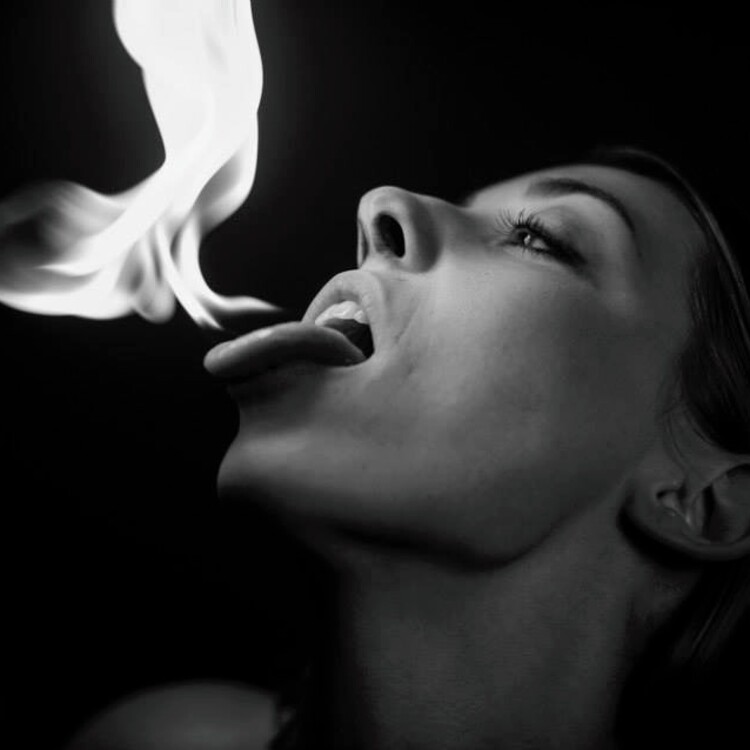
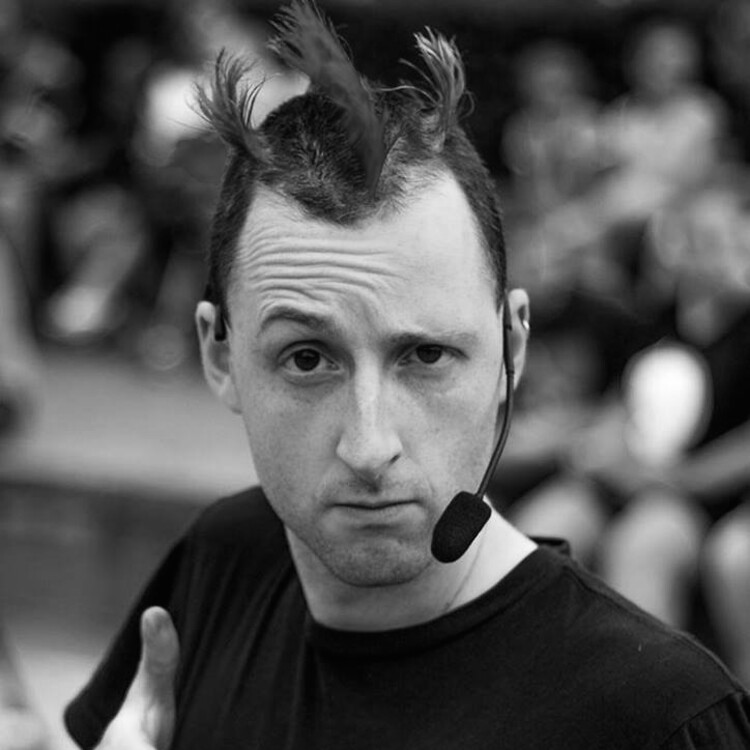
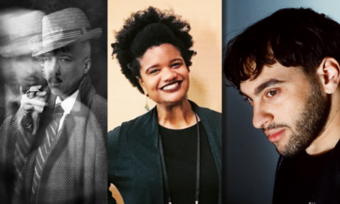



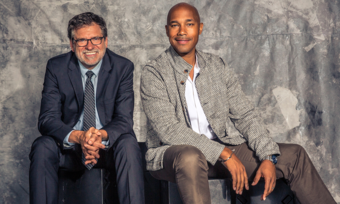


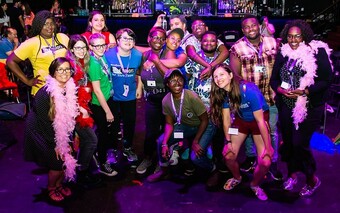


Comments
The article is just the start of the conversation—we want to know what you think about this subject, too! HowlRound is a space for knowledge-sharing, and we welcome spirited, thoughtful, and on-topic dialogue. Find our full comments policy here